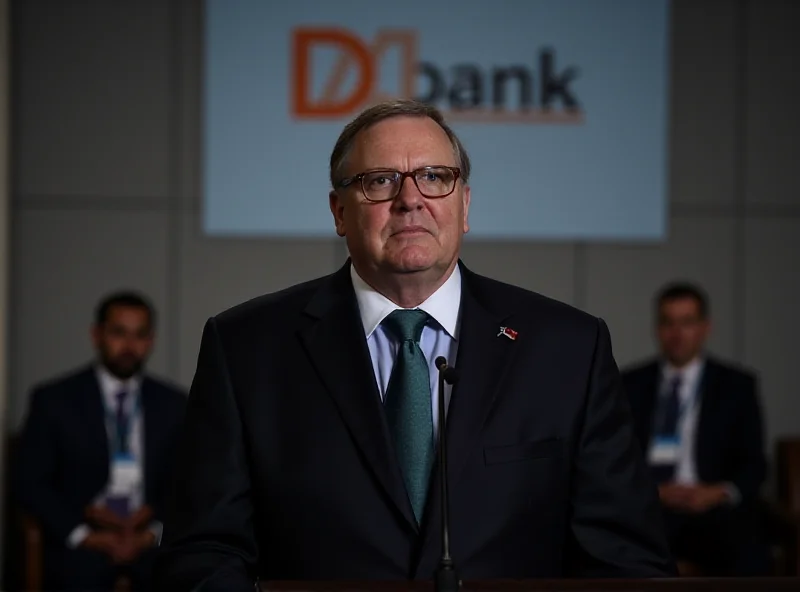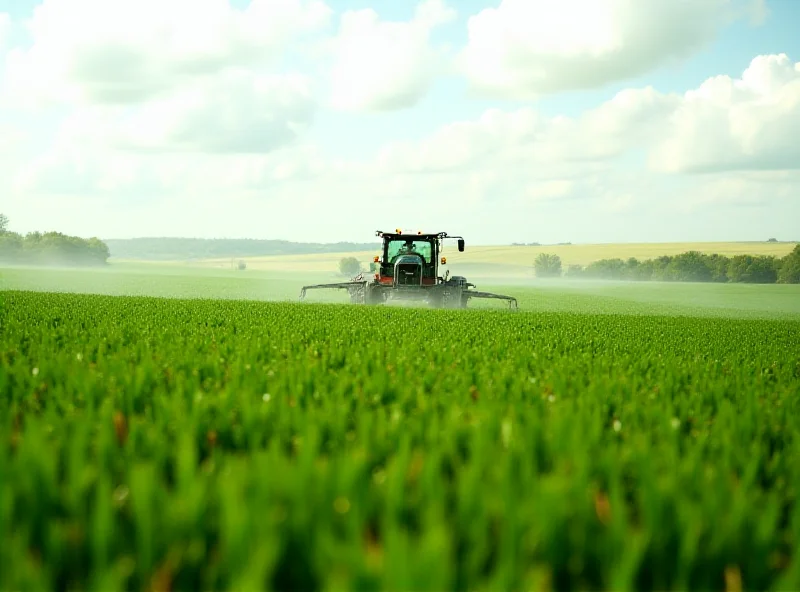Economic storm clouds seem to be gathering on the horizon. From the hallowed halls of banking to the sun-drenched fields of agriculture, anxieties are rising. A top executive is sounding the alarm about a potential banking crisis, while farmers are demanding significant compensation over alleged price fixing.
A Banker's Warning
Cornelius Riese, the head of DZ Bank, is raising concerns about the stability of the banking sector. He's specifically criticizing the high dividend payouts of some competitor banks, suggesting that this could leave them vulnerable in the face of economic downturns.  But the story doesn't end there. Riese's own VR-Bank group isn't immune to challenges. The group is reportedly facing issues related to real estate funds managed by Union Investment and loans extended to Baywa.
But the story doesn't end there. Riese's own VR-Bank group isn't immune to challenges. The group is reportedly facing issues related to real estate funds managed by Union Investment and loans extended to Baywa.
This paints a complex picture where even those issuing warnings are grappling with their own set of problems. It begs the question: how secure is the financial system if even the giants are facing headwinds?
Farmers Fight for Fair Prices
Meanwhile, out in the fields, farmers are facing their own economic battles. Crop protection is a major expense, and they allege they've been unfairly burdened by price fixing on essential pesticides. They are now demanding 200 million euros in compensation from wholesalers through a class action lawsuit.  The lawsuit names Baywa, a company already mentioned in connection with DZ Bank's concerns, adding another layer of complexity to the unfolding economic narrative. This could have a significant impact on the agricultural sector, potentially driving up food prices and impacting consumer wallets.
The lawsuit names Baywa, a company already mentioned in connection with DZ Bank's concerns, adding another layer of complexity to the unfolding economic narrative. This could have a significant impact on the agricultural sector, potentially driving up food prices and impacting consumer wallets.
"This class action lawsuit is about more than just money; it's about fairness and ensuring that farmers can continue to feed the nation without being exploited," says a representative for the farmers.
A Tangled Web of Economic Pressures
The potential banking crisis and the farmers' lawsuit, while seemingly separate, highlight the interconnectedness of the modern economy. Issues in one sector can quickly ripple through others, creating a cascade of problems. The fact that Baywa appears in both narratives further underscores this point.  It remains to be seen how these situations will unfold, but one thing is clear: vigilance and proactive measures are needed to navigate these uncertain times.
It remains to be seen how these situations will unfold, but one thing is clear: vigilance and proactive measures are needed to navigate these uncertain times.
Are we on the brink of another financial meltdown? Will farmers receive the compensation they seek? Only time will tell. But these developments serve as a stark reminder of the fragility of the economic system and the importance of holding corporations accountable.
